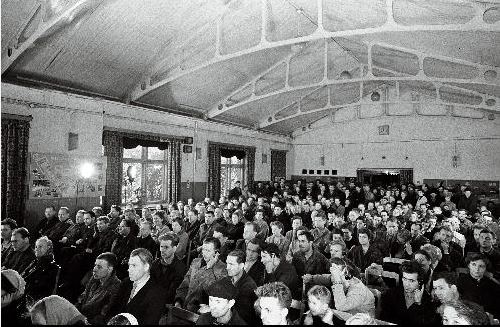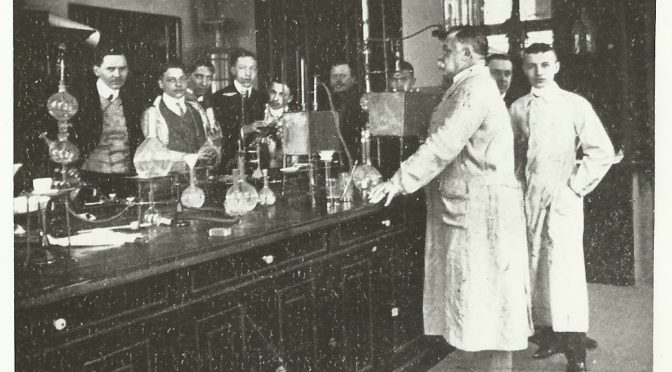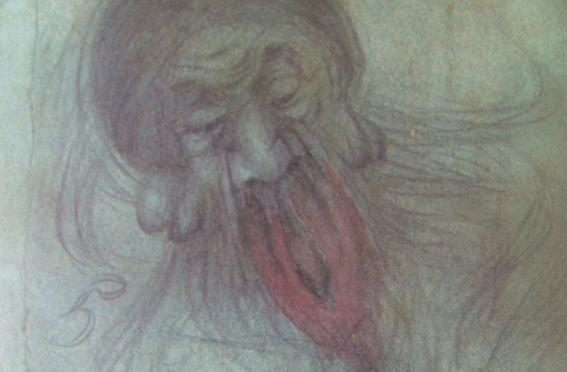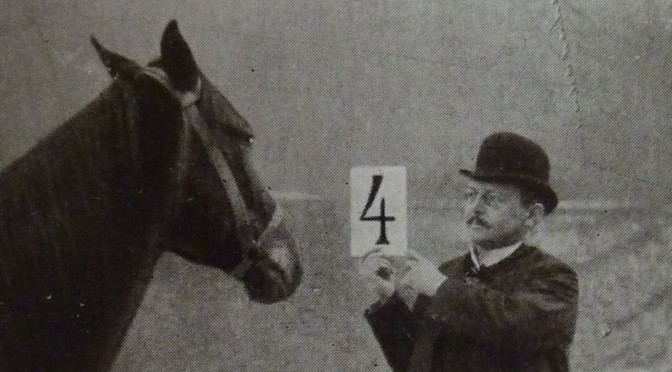Deadline pro zaslání návrhů: 30. března 2017
Zveřejnění výsledků: 1. června 2017
Kde a kdy: 12.-14. října 2017, CEFRES, Praha
Jazyk: anglicky
Konference vznikla na základě tří projektů: rusko-francouzského projektu o soudních řízeních v Sovětském svazu (FMSH/RGNF), mikroprojektu Labex Création, Arts, Patrimoines ‘Images de la justice” a projektu WW2CRIMESONTRIAL1943-1991 podpořeném francouzskou Národní agenturou pro výzkum.
Partneři: CEFRES, Centre Marc Bloch, CERCEC, CEFR, GDR CEM, CERHEC
Vědecká rada: D. Astashkin, A. Blum, A. Kichelewski, S. Lindeperg, F. Mayer, G. Mouralis, M. Steinle, I. Tcherneva
Návrhy prosím podávejte v angličtině do 30. března 2017 na adrese https://ww2justice.sciencesconf.org/submission/submit. Návrh by měl mít rozsah 300 slov a obsahovat název, vybranou bibliografii a krátké resumé.
Kontakty:
Audrey Kichelewski: kichelewski@unistra.fr
Irina Tcherneva: irina.tcherneva@ehess.fr
Cestovní náklady a náklady na ubytování hradí organizátor přednostně za badatele, kteří nemají pevnou pracovní pozici.
Abstrakt v angličtině
 The social history of trials of war crimes and of crimes against humanity,[1] which took place in the aftermath of WWII and its following decades, opens up two new investigation fields. First, taking into account the legal, political and social dimensions of these trials calls forth the inclusion of the various actors who co-produced the legal action. Recent historiography has indeed started to investigate the practices and discourses of the professionals working in the justice system, as well as of the political authorities and of the witnesses who somehow shaped the trials. Second, the diversity of the media mobilized to cover the trials, along with the diversity and temporalities of their hybrid usages, are still a brand new field of exploration. Therefore, the studies focusing on the platforms disseminating the information about these trials cast a new light on the frictions between the ‘legal dramaturgy’ and those provided by journalistic, literary, and visual narratives.
The social history of trials of war crimes and of crimes against humanity,[1] which took place in the aftermath of WWII and its following decades, opens up two new investigation fields. First, taking into account the legal, political and social dimensions of these trials calls forth the inclusion of the various actors who co-produced the legal action. Recent historiography has indeed started to investigate the practices and discourses of the professionals working in the justice system, as well as of the political authorities and of the witnesses who somehow shaped the trials. Second, the diversity of the media mobilized to cover the trials, along with the diversity and temporalities of their hybrid usages, are still a brand new field of exploration. Therefore, the studies focusing on the platforms disseminating the information about these trials cast a new light on the frictions between the ‘legal dramaturgy’ and those provided by journalistic, literary, and visual narratives.
The aim of this conference is to join these two fields of investigation focusing on the trials which were designed as public events. By including the many professional and social actors who got involved and shaped such public, or publicized, trials, we endeavour to question the notion of publicization. The political and institutional choices not to have closed hearings had an impact on the ways such trials were made public. A specific policy accompanied the distribution of the information in order to channel their perception by the population as well as the interactions . On an epistemological level, putting at a distance the notions of communication and mediatization allows for a reappraisal of these actors, who were more than those implementing political decisions. It also enables to consider the press, written or filmed, the radio and the theatre, not only as sheer channels of political information through other media. Analysing the forms of involvement of these various actors (magistrates and police force, whistle-blowers, witnesses, defendants…) should therefore be crossed with a study of the part played by the media supports in the organization, the development and the reception of the trials. The conference will thus highlight the specificity of these publicized trials within the procedures conducted against criminals against humanity.
The tensions between the legal and historical nature of such trials shall not only be studied through the intents and practices of the political and legal authorities, but also through the part played by the other co-makers of the event. Special emphasis will be put for instance on the search for perpetrators by former victims who called on investigative bodies to bring them to justice, on the involvement of commemorative associations in organizing the trials, on the reactions of the public, on the media coverage of the trials. the readers of the newspapers which published such promotional materials, demanded heavier sentences and a large coverage of the prosecutions of war criminals. Was such public participation only organized from the top? Moreover, legal and media actors, witnesses and memory communities took part in the shaping of WWII narratives promoted in the public space in part by legal action.
If we consider these trials as social facts, another challenge must be met that concerns more specifically the trials taking place in the East of Europe, in the states undergoing Soviet satellization. An analytical method seeks to understand how public space was thought up in socialist regimes. Benefiting from the outcomes of the research led on the forms of autonomy of social actors under socialism, we strive to intertwine this perspective with a comparative approach as we investigate the trials taking place in Eastern and Western Europe. Such approach will enable to deal both with the political dimension of public trials and with the forms of mobilization of professional and social actors in the context of the Cold War.
The political time frame pertaining to each country will be taken into consideration. For instance, the legacy of the Soviet trials of the 1930s shall not be overlooked, although the transformations introduced in the after-war should not be underestimated. How were such trials of crimes against humanity employed in order to consolidate the internal legitimacy of the various regimes, to unfold political pedagogy and stir popular participation within the societal project aimed at? Did individual requests or popular unrest influence the choice to make these trials public or not? The proposed method should enable to position them in connection with the national narratives on WWII cast after the war and to give a sense of the responses according to the various types of political regimes.
[1] The generic term ‘war crimes’ was commonly used in the texts and proceedings of this period referring to acts and violations of the rights and customs of war (definition of “war crimes” in the August Statute of the International Military Tribunal, 1945), and to ‘crimes against humanity’ (ibidem).
[2] Interrogation which continues the analyses on Western media transforming the information on such trials. A. Pinchevski & T. Liebes 2010, M. Steinle 2004, J. Maeck & M. Steinle 2016.
Topics
The conference will be built around three research topics. Which professional, institutional and individual actors got involved as these trials unfolded within the different historical and national contexts, and what was the extent of their autonomy? To what political and social aims did the publicization practices of these trials answer to? How did the arts and the press media shape the reception of these trials?
The first research topic of this conference shall be devoted to identifying of the involved actors, and to understanding the forms and extent of their involvement, and the mutual interactions of such actors with uneven political and symbolic assets. It shall follow the steps of the publicization of the trials: the mobilization of actors (broadly speaking, e.g. including close and distant audiences of the trials); the making of media (films, photography exhibitions, etc.); the reception.
Papers dealing with the following topics will be especially welcome: what relationships did political makers engage with the population? What could prompt new actors (institutional, associative…) to get involved as the trials were set up? What interactions can be observed during the reception of these trials? In socialist regimes, could the political pedagogy conducted by political authorities during the trials stir social initiatives? According to which criteria, the degrees of the autonomy of the bottom up legal elaboration can be determined for different national contexts?
The second research topic shall investigate the aims granted by the State to such public trials and their political consequences. The reinterpretation of WWII during the trials stands out within the range of legitimacy strategies followed by the State. Was the public nature of these trials connected with commemorative endeavours, even with small-scaled investigations? More broadly, how were such decisions to make these trials public received? In this wake, what practices were unfolded by legal and professional actors or by witnesses? What spaces of autonomy were at stake as knowledge and expertises met? What pedagogy of power can be disclosed as the work of the legal system received such emphasis?
Special focus shall be put in a third topic area on the communication tools used to cover the trials and on their content. Connecting studies on cinema, the written press, the radio, leaflets, and the arts, can help understanding the specificity and temporality of the usages of each medium.
Media professionals, who put into words and images the portraits of the victims, the perpetrators and the witnesses, shall be put under scrutiny, along with the processes they resorted to. How did they interact with the know-how and the documentation that were provided by other professional actors implied in setting up the legal procedures? In which social, political and professional contexts did the visual and textual representations get shaped? How did the media impact the trial dramaturgy, the attorneys, judges, defendants and witnesses?[2] What portraits of the public did they sketch? Observing the possible correlations, or even confrontations, between the ‘legal dramaturgy’ elaborated by legal actors and the police, on the one hand, by the media on the other, shall be at the core of this topic.
Papers can consist in case studies of trials or approach transversal dynamics can focus on types of involved actors, forms of public engagement and of mediatization of the trials. The analysis of international dimensions of such trials is particularly welcome, both in terms of aims sought by a large-scale media coverage and in terms of international exchange of information, legal know-how, witnesses, exhibits.
Selective Bibliography
- Astaškin, Dmitrij. 2014. ‘Otkrytyj sudebnyj process nad nacistskimi voennymi prestupnikami v Novgorode (1947 god)’, in: Janin, V. (Ed.), Novgorodskij Istoričeskij Sbornik. Sbornik Naučnyh Trudov. Velikij Novgorod, Institut istorii RAN / Novg. gos. universitet, Velikij Novgorod: 352-375.
- Astaškin, Dmitrij. 2015. Sovetskij Njurnberg. Processy nad nacistskimi prestupnikami na territorii SSSR v 1943-1949 gg.. Rossijskoe istoričeskoe obščestvo / Gosudarstvennyj central’nyj Muzej sovremennoj istorii, Moskva.
- Bankier, David & Michman, Dan (Eds.), 2010. Holocaust and justice: representation and historiography of the Holocaust in post-war trials. Yad Vashem, Jerusalem, Israel.
- Barbat, Victor. 2017. ‘Une guerre en marge. Le conflit sino-japonais sur les écrans soviétiques, 1938-1941’. Conserveries mémorielles. To be published in 2017.
- Berkhoff, Karel C. 2009. ‘“Total Annihilation of the Jewish Population”: The Holocaust in the Soviet Media, 1941-45’. Kritika: Explorations in Russian and Eurasian History Kritika: Explorations in Russian and Eurasian History 10 (1): 61 ‑ 105.
- Berkhoff, Karel C. 2012. Motherland in Danger Soviet Propaganda during World War II. Cambridge, Massachusetts: Harvard University Press.
- Bosch. William. 1970. Judgement on Nuremberg. American Attitudes toward the Major German War-Crime Trials. Chapel Hill, University of North Carolina Press.
- Cassiday, Julie A. 2000. The Enemy on Trial: Early Soviet Courts on Stage and Screen. DeKalb, Ill.: Northern Illinois University Press.
- Cehreli, Ayse Sila. 2014. Les magistrats ouest-allemands font l’histoire: la “Zentrale Stelle” de Ludwigsburg. Paris, France: L’Harmattan.
- Christian, Michel & Emmanuel Droit. 2005. “Écrire l’histoire du communisme : l’histoire sociale de la RDA et de la Pologne communiste en Allemagne, en Pologne et en France”. Genèses no 61 (4): 118‑33.
- Delage, Christian. 2006. La vérité par l’image: de Nuremberg au procès Milosevic. Paris: Denoel.
- Delpla, Isabelle. 2011. Le mal en procès: Eichmann et les théodicées modernes. Paris: Hermann.
- Douglas, Lawrence. 2001. The Memory of Judgement Making Law and History in the Trials of the Holocaust. New Haven [CT]: Yale University Press. http://site.ebrary.com/id/10217106.
- Douglas, Lawrence, Martha Merrill Umphrey & Austin Sarat. 2005. Law on the Screen. Stanford: Stanford University Press.
- Douglas, Lawrence, 2016. The right wrong man: John Demjanjuk and the last great Nazi war crimes trial. Princeton University Press, Princeton.
- Dufour, Diane & Christian Delage. 2015. Images of conviction: the construction of visual evidence. Paris: Le Bal : Éditions Xavier Barral.
- Feferman, Kiril. 2014. ‘Soviet legal procedures against the Nazi criminals and Soviet collaborators as Historical Sources’. Legacy, no 6: 34‑ 43.
- Feltman. Brian K. 2004. ‘Legimizing Justice: The American Press and the InternationalMilitary Tribunal, 1945–1946’. Historian, 66 (2): 300–319.
- Fischer, Axel. 2014. ‘Promoting International Criminal Law: The Nuremberg Trial Film Project and US Information Policy after the Second World War’. In Historical Origins of International Criminal Law: Volume 1, Morten Bergsmo, Wui Ling Cheah, et Ping Yi: 623‑53.
- Friedman, Alexander. 2016. ‘Krankenmorde im Raum Minsk und ihre Aufarbeitung in der Sowjetunion und in der Bundesrepublik Deutschland’ in Alexander Friedman and Rainer Hudemann (eds.): Diskriminiert – vernichtet – vergessen. Behinderte und Kranke in der Sowjetunion, in den besetzten sowjetischen Gebieten und im Ostblock, Stuttgart: Franz Steiner Verlag: 395-414.
- Friedman, Alexander, 2016. “”Objektiv unausweichliche Maßnahmen“. Die Ermordung von Menschen mit körperlichen und geistigen Behinderungen In den besetzten sowjetischen Gebieten: Die Beispiele Šumjači (Gebiet Smolensk) und Makar’evo (Gebiet Leningrad)’ In Alexander Friedman and Rainer Hudemann (eds.): Diskriminiert – vernichtet – vergessen. Behinderte und Kranke in der Sowjetunion, in den besetzten sowjetischen Gebieten und im Ostblock, Stuttgart: Franz Steiner Verlag, 385–393.
- Hicks, Jeremy. 2012. First Films of the Holocaust: Soviet Cinema and the Genocide of the Jews, 1938–1946. Pittsburgh: University of Pittsburgh Press.
- Holmila. Antero. 2011. Reporting on the Holocaust in the British, Swedish and Finnish Press, 1945-50. London. Palgrave Macmillan: 89–106.
- Smith, Jeremy & Melanie J. Ilic. 2011. Khrushchev in the Kremlin : Policy and Government in the Soviet Union, 1953–1964. Milton Park, Abingdon, Oxon ; New York, NY : Routledge.
- Kantorovitch, Nati. 2007. ‘Soviet Reactions to the Eichmann Trial: A Preliminary Investigation 1960–1965’, Yad Vashem Studies, t. 35. 91–122.
- Koskenniemi, Martti. 2002. The Gentle Civilizer of Nations: The Rise and Fall of International Law, 1870–1960. Cambridge, UK; New York: Cambridge University Press.
- Koskenniemi, Martti 2002. Between Impunity and Show Trials. Max Planck Yearbook of United Nations Law 6, 1–35.
- Kozlovsky-Golan, Yvonne. 2011. “L’image visuelle de la Shoah et les procès de Nuremberg. Le film Les Camps de concentration nazis et son impact”. Les Écrans de la Shoah. La Shoah au regard du cinéma, Revue d’histoire de la Shoah, no 195: 61‑104.
- Krakovsky, Roman. 2014. Réinventer le monde. Les cadres sociaux d’espace et de temps en Tchécoslovaquie communiste. Paris: Publications Sorbonne.
- Lindeperg, Sylvie & Annette Wieviorka. 2008. “Les deux scènes du procès Eichmann”. Annales. Histoire, Sciences Sociales 63 (6): 1249‑74.
- Lindeperg, Sylvie & Annette Wievorka, éd. 2016. Le Moment Eichmann. Bibliothèque histoire. Paris: Albin Michel.
- Maeck, Julie, et Matthias Steinle. 2016. L’image d’archives : Une image en devenir. PU Rennes.
- Marrus. M. R.. 2000. “L’histoire de l’Holocauste dans le prétoire”. In Bayard. Florent, (dir.), Le génocide des Juifs entre procès et histoire. 1943-2000. Bruxelles. Complexe: 26–56.
- Michalczyk, John J. 2014. Filming the End of the Holocaust: Allied Documentaries, Nuremberg and the Liberation of the Concentration Camps.
- Moine, Nathalie. 2011. ‘Defining “war Crimes against Humanity” in the Soviet Union Nazi Arson of Soviet Villages and the Soviet Narrative on Jewish and Non-Jewish Soviet War Victims, 1941–1947’. Cahiers Du Monde Russe 52 (2-3): 441‑73.
- Moine, Nathalie. 2013. ‘‘Fascists Have Destroyed the Fruit of My Honest Work”. The Great Patriotic War, International Law and the Property of Soviet Citizens’. Jahrbücher Für Geschichte Osteuropas 61 (2): 172‑95.
- Mouralis, Guillaume. 2008. Une épuration allemande: la RDA en procès, 1949-2004. Paris: Fayard.
- Mouralis, Guillaume. 2015. “Outsiders du droit international. Trajectoires professionnelles et innovation juridique à Londres, Washington et Nuremberg, 1943-1945”. Monde(s) 1: 113-34.
- Mouralis, Guillaume. 2012. ‘Lawyers versus Jurisconsults: Sociography of the Main Nuremberg Trial’, In: X., D.K.M., Leuwers, H. Luyten, D. et Rousseaux, (Ed.), Justice in Wartime and Revolutions: Europe, 1795–1950 : Europe, 1795–1950, Justice and Society. Archives générales du Royaume, Bruxelles: 325–36.
- Pendas, David O. 2006. The Frankfurt Auschwitz trial, 1963-65: genocide, history and the limits of the law. Cambridge University Press, Cambridge, New York.
- Pinchevski, Amit, & Tamar Liebes. 2010. ‘Severed Voices: Radio and the Mediation of Trauma in the Eichmann Trial’. Public Culture 22 (2): 265 ‑ 91. doi:10.1215/08992363-2009-028.
- Schulberg. Sandra. 2012. ‘Filmmakers for the Prosecution. The Making of Nuremberg: Its lessons for Today’. American Bar Association. Chicago. http://www.americanbar.org
- Shneer, David. 2011. Through Soviet Jewish Eyes: Photography, War, and the Holocaust, Rutgers U.P.
- Shneer, David. 2015. ‘Is Seeing Believing ?: Photographs, Eyewitness Testimony, and Evidence of the Holocaust’, In East European Jewish Affairs, vol. 45, no. 1.
- Steinle, Matthias. 2004. “Images inter-allemandes pendant la guerre froide: les séries “Archive sagen aus” (DEFA) et “Mitteldeutsches Tagebuch” (SFB).” Allemagne d’aujourd’hui: 178‑90.
- Voisin, V., 2012. ““Au nom des vivants”, de Léon Mazroukho : une rencontre entre discours officiel et hommage personnel”, In Pozner, V., Laurent, N. (Eds.), Kinojudaica: les représentations des Juifs dans le cinéma de Russie et d’Union Soviétique des années 1910 aux années 1980. Nouveau monde ; Cinémathèque de Toulouse, Paris; Toulouse: 365-407.
- Voisin, Vanessa. 2015. L’URSS contre ses traîtres: l’Épuration soviétique (1941-1955). Paris, France: Publications de la Sorbonne.
- Voisin, Vanessa. 2016. “Le procès de Jérusalem et la représentation de la Shoah en URSS”. In Lindeperg. Sylvie, Wieviorka. Annette (eds.). Le Moment Eichmann. Paris: Albin Michel, 139 ‑ 68.
- Weiss-Wendt, Anton. 2009. Murder without hatred Estonians and the Holocaust, Syracuse, N.Y., Syracuse University Press.
- Weiss-Wendt, Anton. 2004. ‘Extermination of the Gypsies in Estonia during World War II’. In Collaboration and Resistance During the Holocaust: Belarus, Estonia, Latvia, Lithuania, eds.: David Gaunt et al., Bern: Peter Lang: 383‑402.
- Wittmann, Rebecca. 2005. Beyond Justice the Auschwitz Trial. Cambridge: Harvard University Press.







